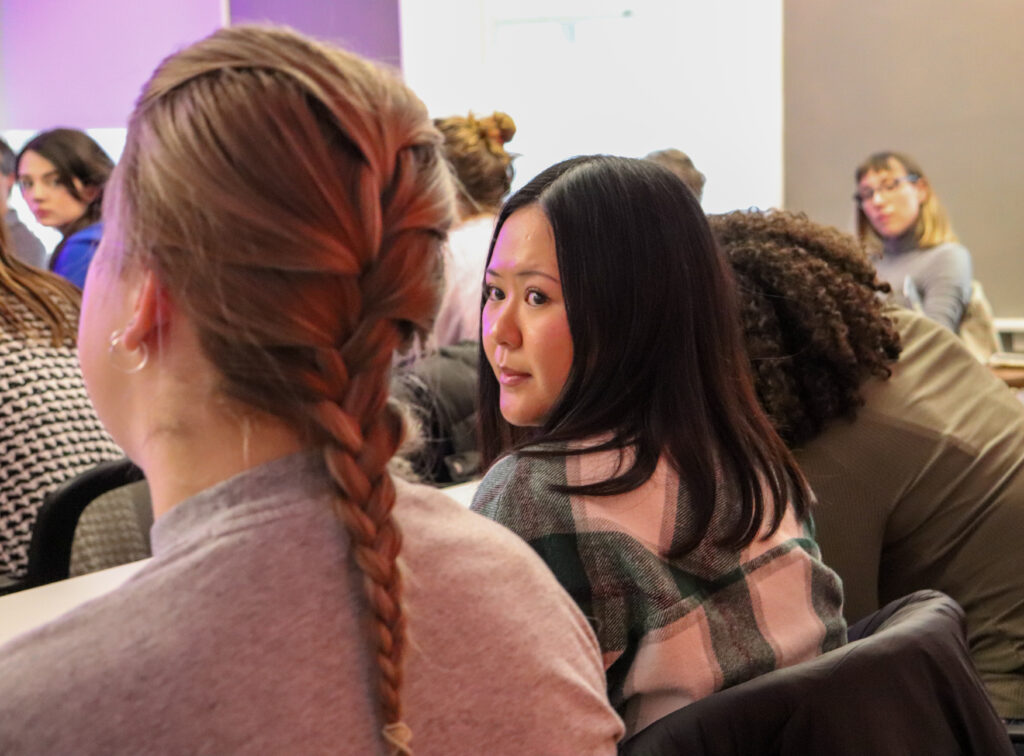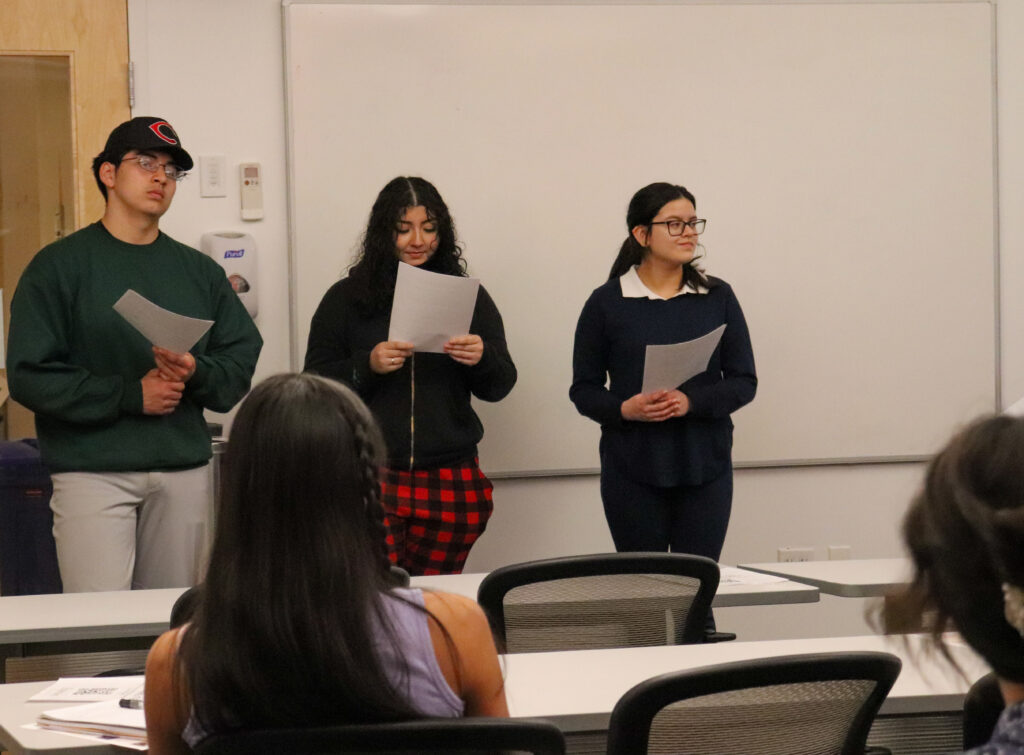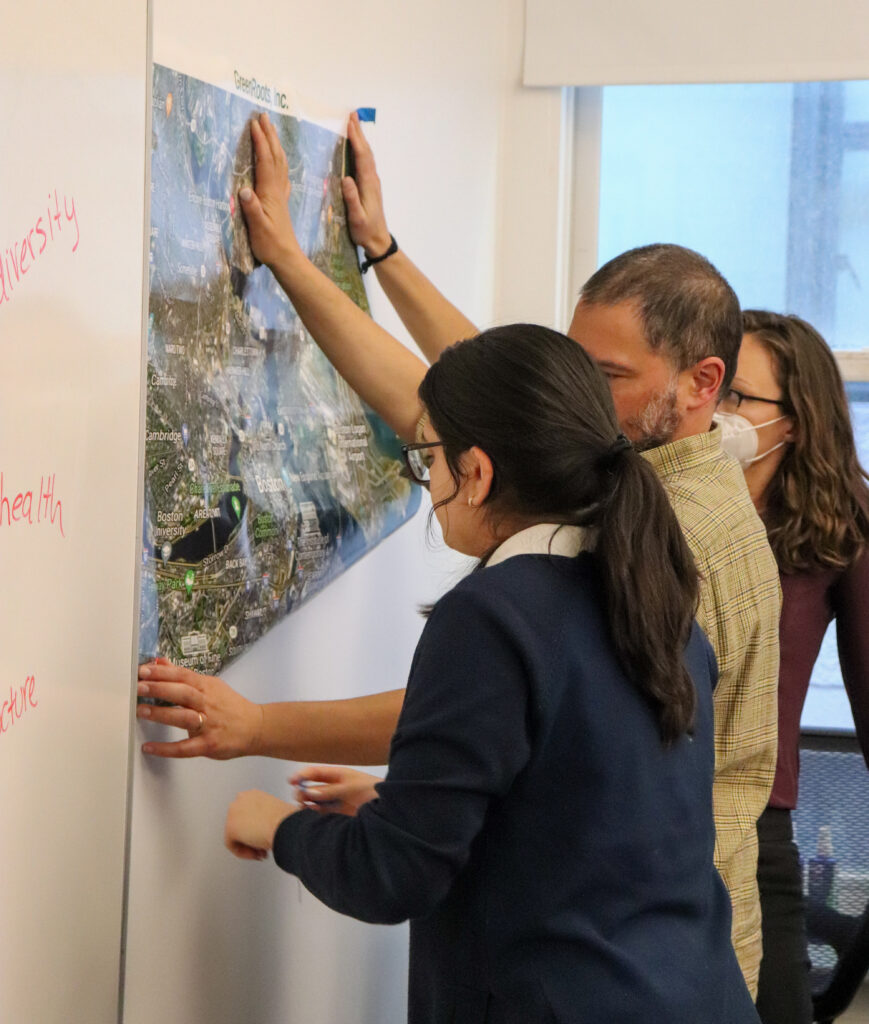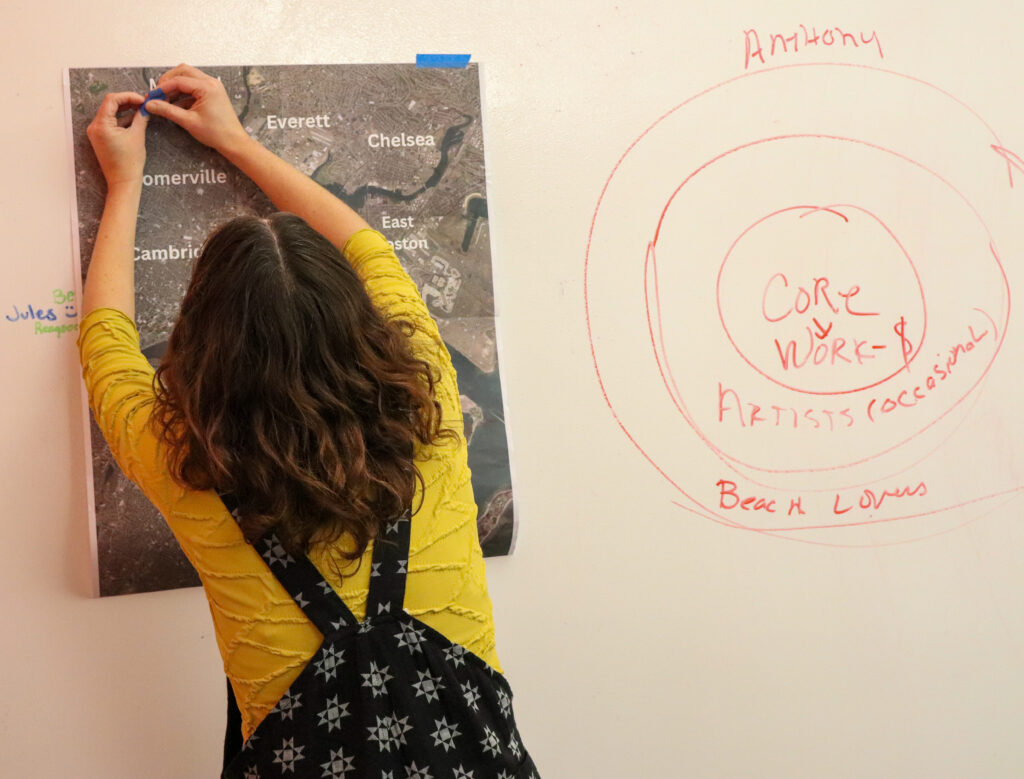Learn-Outs from the Teach-In on Sustainability

Some of the key takeaways from the 2023 Teach-In on Sustainability.
Years in the making, the first annual Teach-In on Sustainability brought students, faculty, alumni, and Boston community members together to discuss how Emerson can leverage its talent and expertise in the arts and communication to help create a more sustainable tomorrow.
With 12 wide-ranging sessions held across campus over four days in March, there was much to “learn-out” from the Teach-In, and the event organizers invited participants to share their takeaways.
Here we share some insights and reflections from four of the symposium’s events.
Session: Reading and Writing the Environment
The first event of the Teach-In invited participants to identify and synthesize themes of sustainability within writing. Senior Writer-in-Residence Christine Casson and Boston University biology professor Richard Primack married topics such as environmental justice with literature, making scientific concepts more accessible and applicable to other mediums.
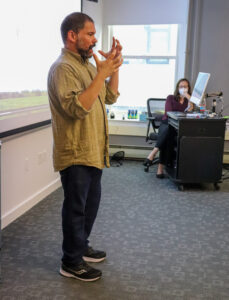
Nejem Raheem, Teach-In organizer and interim chair of Marketing Communication, reflected on how classic authors like Henry David Thoreau explored environmentalism in their writing.
“Science uses people’s observations, and science is accessible,” Raheem said, noting Thoreau’s record-keeping of climate impact.
Session: Postcolonial and Indigenous Environments
On Tuesday, attendees flocked to the Engagement Lab, where Assistant Professor Rituparna Mitra, Engagement Lab Director Eric Gordon, and lab coordinator Liora Goldberg introduced the video game, Never Alone (Kisima Ingitchuna).
Never Alone is a prime example of how climate change drives narratives and lends itself to collaborative storytelling. An atmospheric puzzle game, Never Alone was developed in collaboration with the Iñupiat, an Alaska Native people. The game itself is based on a traditional story that has been passed down through generations of Iñupiat and asks players to track down the source of a devastating blizzard.
The game offered players a visual representation of the Alaskan landscape and climate and left a lasting impression on many.
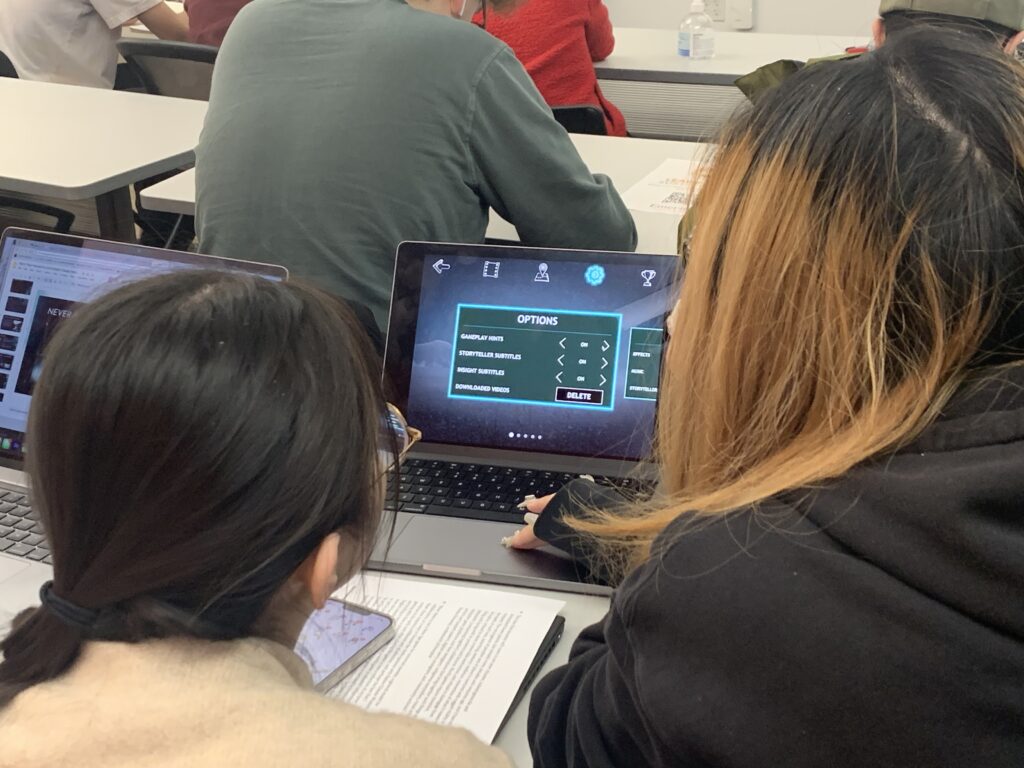
“[We] people on the planet are, like the game title says, ‘never alone,’ Braden Page ‘25 said. “We must live in harmony with not only each other but the flora and fauna that inhabit this earth.”
Session: Emerson’s Transforming Narratives for Climate Justice

Teach-In learners attending Wednesday’s session also got to experience the collaborative nature of the Engagement Lab. In a multi-layered session, professors of the college’s new “Transforming Narratives for Climate Justice” initiative discussed how their classes will partner with local organizations to create storytelling projects that advocate for climate justice within Boston. The course will debut in Fall 2023, featuring a partnership with the Chelsea-based GreenRoots.
As a sort of preview to that collaboration, student leaders from the Environmental Chelsea Organizers (ECO) guided participants through a workshop on environmental justice.
“The initiative allows members of the Emerson community to make real, significant change through collaboration and growth,” noted Indigo Pinedo ‘23, vice president of Emerson Green Collective. “The standards for success and impact are relative to how the strengths of the students are highlighted and challenged.”
Additional Learn-Outs from the Teach-In
- “The idea of ‘Every story has been told’ can be combated with finding new ways to tell them.” —Avanika Lefcowitz, Green Production and Harnessing Storytelling for Sustainability
- “Decolonization can occur in any/all of our spaces if we allow ourselves to adjust our frameworks of seeing. Power structures are not indestructible, nor should they be treated as such.” —Munroe Shearer, Decolonizing the Arts
- “We compartmentalize a lot of our emotions in our bodies. Movement work can be a way to rediscover what we actually feel.” —Aidan Harper, How to Calm Your Nervous System in These Trying Times
- “I loved hearing the beautiful storytelling of the Inupiat people. The graphics of the game were incredible and made the world-building so immersive.” —Hailey Bochette, Postcolonial and Indigenous Environments
- “This well-rounded virtual experience blends fantasy with reality in ways users could enjoy navigating the challenge at hand, while also gaining insight on the cultural and climatic history, context, challenges surrounding our planet, people and in particular, indigenous populations.” —Molly Loughman, Postcolonial and Indigenous Environments
Categories
Isabella Luzarraga View All
Isa is a senior journalism major minoring in media studies. She is from Omaha, Nebraska but loves coming back to the city. Outside of coursework, Isa is the Managing Editor of Your Magazine, the secretary of Emerson's chapter of NAHJ and a freelance writer for publications nationwide. She loves reading in the Common, going for long runs and sipping iced coffee.
